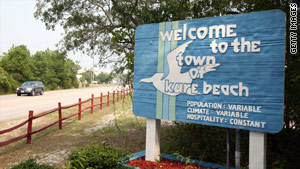Malawi row over whether new law bans farting
 The justice minister said local chiefs would deal with those caught breaking wind in public
The justice minister said local chiefs would deal with those caught breaking wind in publicTwo of Malawi's most senior judicial officials are arguing over whether a new bill includes a provision that outlaws breaking wind in public.
Justice Minister George Chaponda says the new bill would criminalise flatulence to promote "public decency".
"Just go to the toilet when you feel like farting," he told local radio.
However, he was directly contradicted by Solicitor General Anthony Kamanga, who says the reference to "fouling the air" means pollution.
"How any reasonable or sensible person can construe the provision to criminalising farting in public is beyond me," he said, adding that the prohibition contained in the new law has been in place since 1929.
The Local Courts Bill, to be introduced next week reads: "Any person who vitiates the atmosphere in any place so as to make it noxious to the public to the health of persons in general dwelling or carrying on business in the neighbourhood or passing along a public way shall be guilty of a misdemeanour."
Mr Chaponda, a trained lawyer, insists that this includes farting.
"Would you be happy to see people farting anyhow?" he asked on the popular "Straight Talk" programme on Malawi's Capital Radio...
He said that local chiefs would deal with any offenders...
When asked whether it could be enforced, he said it would be similar to laws banning urinating in public.
